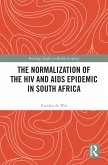In recent years, a number of large population-based biobanks - genetic databases that combine genetic information derived from blood samples with personal data about environment, medical history, lifestyle or genealogy - have been set up in order to study the interface between disease, and genetic and environmental factors. Unsurprisingly, these studies have sparked a good deal of controversy and the ethical and social implications have been widely debated. Biobanks: Governance in Comparative Perspective is the first book to explore the political and governance implications of biobanks in Europe, the United States, Asia, and Australia. This book explores: the interrelated conditions needed for a biobank to be created and to exist the rise of the new bio-economy the redefinition of citizenship accompanying national biobank developments This groundbreaking book makes clear that biobanks are a phenomenon that cannot be disconnected from considerations of power, politics, and the reshaping of current practices in governance. It will be a valuable read for scholars and students of genetics, bioethics, risk, public health and the sociology of health and illness.
Hinweis: Dieser Artikel kann nur an eine deutsche Lieferadresse ausgeliefert werden.
Hinweis: Dieser Artikel kann nur an eine deutsche Lieferadresse ausgeliefert werden.








